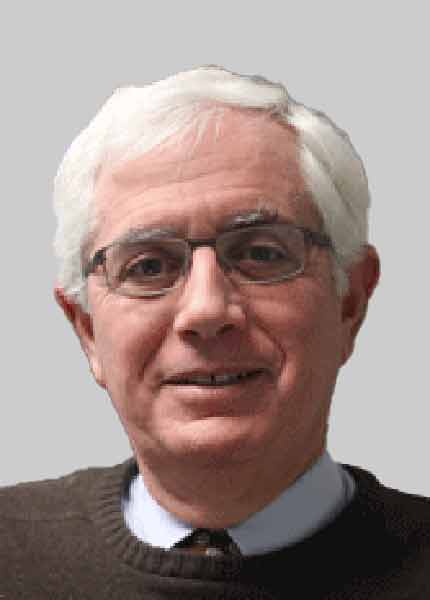
McGill University
Montreal Neurological Institute
Jack Antel is a clinical neurologist who coordinates the multiple sclerosis research and treatment program at the Montreal Neurological Institute. He has served as President of the International Society of Neuroimmunology, president of ACTRIMS, Scientific Director of the endMS Research and Training Network supported by the MS Society of Canada, and as Editor for the Americas of the Multiple Sclerosis Journal.
His research interests include understanding the mechanisms of tissue injury and repair that occur in MS and how these can be therapeutically targeted. He received the 2005 Dystel Award from the National Multiple Sclerosis Society and the American Academy of Neurology.

Melissa and Paul Anderson President’s Distinguished Professor
Department of Neurology, Perelman School of Medicine
Director, Centre for Neuroinflammation and Experimental Therapeutics
Chief, Division of MS and Related Disorders
University of Pennsylvania (UPenn)
Dr. Bar-Or, a neurologist and neuroimmunologist, was Professor in the Department of Neurology and Neurosurgery, and Associate Director (Clinical and Translational Research) of the Montreal Neurological Institute and Hospital, McGill University, prior to taking on position of Presidential Endowed Chair at the University of Pennsylvania (UPenn/CHOP) where is founder and Director of the Centre for Neuroinflammation and Experimental Therapeutics.
His clinical focus is Multiple Sclerosis (MS) and related disorders in both adults and children, and he runs a cellular and molecular Neuroimmunology lab that studies basic principles of immune regulation and immune-neural interaction, in the context of inflammation, injury and repair of the human central nervous system (CNS). Research themes are directed at understanding principles of immune-regulation, elucidation of effector and regulatory mechanisms of distinct immune cell (principally T cell, B cell, and myeloid cell) subsets in CNS inflammatory disease; immune reconstitution, neuroimmune interactions and mode of action of emerging therapies.
He is past President of the Canadian Network of MS Clinics (CNMSC) and past member of the Board of Directors of the Federation of Clinical Immunology Societies (FOCIS) where he continues as a member of the Education Committee. He also serves on the Board of Directors of the Americas Committee for Treatment and Research in Multiple Sclerosis (ACTRIMS) and on the Steering Committee of the NIH Immune Tolerance Network (ITN).
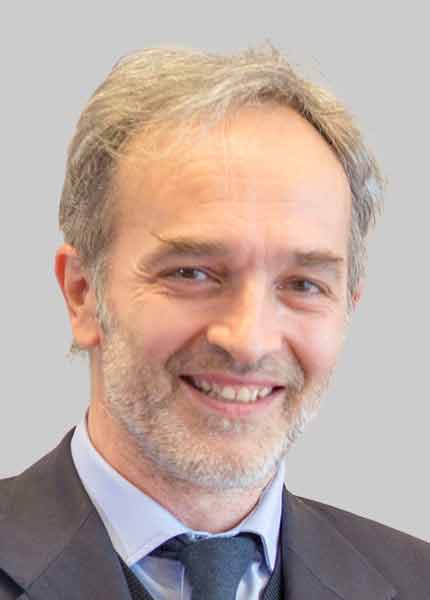
Division of Neuroscience
San Raffaele Hospital – Milan
Gianvito Martino (Bergamo, 1962) received his Medical Degree in 1987 from the Univ. of Pavia(Italy)and completed his residency in Neurology in 1991. In 1990, he was a Visiting Scientist at the Dept. of Neurology of the Karolinska Institute (Sweden) and, from 1991 to 1992, he held the position of Research Associate at the Dept. of Neurology of the Univ. of Chicago (Chicago, IL, USA).
From 1992 to 2008, he worked first as Senior Scientist and then as Director of the Neuroimmunology Unit of the San Raffaele Scientific Inst. in Milan (Italy) where he acted as Director of the Neuroscience Division. From 2016, he serves as Scientific Director of San Raffaele Hospital.
He is full professor of Experimental Biology and Vice Rector for Research and Third Mission at the San Raffaele Vita-Salute Univ. in Milan. He was appointed Honorary Professor at Queen Mary Univ. of London from 2009 to 2017. He has been the Scientific Secretary (1998-2003) and the President (2009-2012) of the Italian Neuroimmunology Society (AINI). He is the founder and the Scientific Coordinator of the European School of Neuroimmunology (ESNI) and of the Global Schools of Neuroimmunology (GSNI).
Within the International Society for Neuroimmunology (ISNI), he served as advisory board member (2002-2010), Vice President (2010-2012) and President (2012-2014). He has been a member of the scientific committee and reviewing panel of ECTRIMS, FISM, MSIF, INSERM, UK MS Society, Wellcome Trust’s Peer Review College. From 2017 to 2019 he has been the President of the scientific council of the Fondazione Regionale per la Ricerca Biomedica (FRRB).
From 2015 to 2022 he served as Panel Member of the European Research Council (ERC). He has co-authored more than 300 original articles and book chapters. His scientific interests range from the elucidation of the pathogenic mechanisms of immune-mediated central nervous system disorders to the development of gene and stem cell-based therapies for the treatment of these disorders.
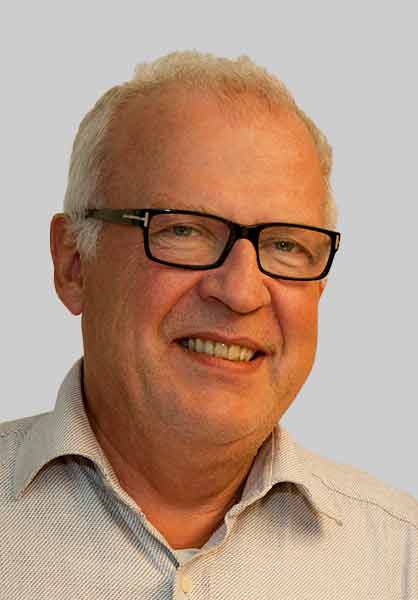
Professor of Neurology
the Karolinska Institutet
Tomas Olsson is professor of Neurology at the Karolinska Institutet, Stockholm Sweden.
He is active in a large number of academic groups and societies in the neurology area. He is member of the board of the Swedish MS society, has been chairman for the previous Swedish expert committee for MS and is co-founder of the European School of Neuroimmunology (ESNI). He is also a member of the International MS societies, former president of the international Society of Neuroimmunology (ISNI) and former member executive board of the European Committee for the Treatment of Multiple Sclerosis (ECTRIMS). He is also a former member of the Nobel assembly. He was a chairman of the Nobel assembly 2017.
He has been co-author of over 637 original papers, and many of them published in high impact journals like Nature Genetics, Cell, Lancet, the Journal of Experimental Medicine, the Journal of Clinical investigation and the Journal of Neuroscience. He also have around 71 reviews.
Current research interest is in the immunology, epidemiology and genetics of multiple sclerosis and its experimental models, as well as neuro-infections.
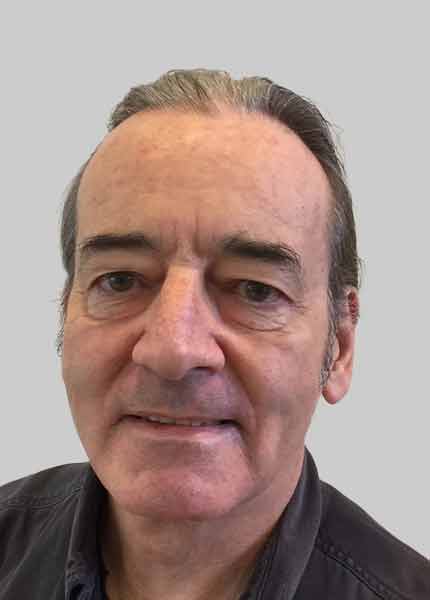
University of Southern Denmark, Odense
Nationality Ireland, Canada
Address
Institute of Molecular Medicine
University of Southern Denmark
J.B. Winsloewsvej 25
DK-5000 Odense C
Trevor Owens is Professor of Neurobiology in the Department of Molecular Medicine at the University of Southern Denmark. He obtained his PhD from the University of Ottawa. After postdoctoral training in London and Melbourne he returned to McGill University and joined the Neuroimmunology Unit of the Montreal Neurological Institute where he became a Professor in 2001. In 2004 he was appointed Professor at the University of Southern Denmark, and was leader of the Neurobiology Research Department from 2010-2023. His laboratory focuses on animal models of multiple sclerosis and specifically on interactions between immune and glial cells in the brain and spinal cord. He has published 131 papers in peer-reviewed journals (H-index=55).
He served as treasurer of ISNI from 2001 and secretary/treasurer of ISNI from 2004-2010, and as an ESNI Board member since 2008. He was President of the Scandinavian Society for Immunology from 2016-2020.
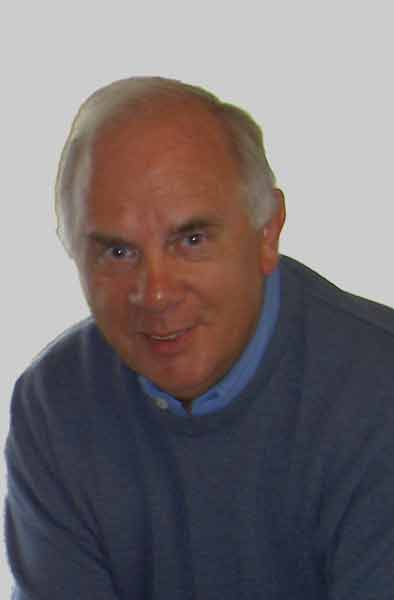
Professor Emeritus of Pathology
Neuroscience and Neurology
Albert Einstein College of Medicine, NYC
In a career spanning more than four decades, Dr. Raine made many significant contributions towards the understanding of the insidious autoimmune disease, multiple sclerosis (MS). At a time when investigations into immunologic interactions within the central nervous system (CNS) lacked a dedicated journal and met with some difficulty when submitted to the general immunologic literature, Dr. Raine launched the Journal of Neuroimmunology in 1980 (serving as Editor-in-Chief until 2010) and founded the International Society of Neuroimmunology in 1987 (serving as President from 1987-2001).
Dr. Raine and his group at Einstein showed that in MS, the immune system targets the myelin sheaths of nerve fibers in the CNS and PNS leading to selective and widespread destruction of myelin (demyelination), axons and oligodendrocytes and to the disruption of nerve conduction. Dr. Raine is recognized for the identification and characterization of immune cells and mediators involved in myelin breakdown and repair mechanisms in MS and in the development and analysis of its laboratory models. He was also involved in the analysis of the interactions between several viruses and the CNS. His groundbreaking ultrastructural studies allowed for the visualization and analysis of several unique structural features in the nervous system and of disease processes in demyelination. His work also uncovered several molecular pathways applicable to the testing of experimental immune-based therapies paving the way for some treatments now in use in MS.
His bibliography shows almost 500 peer-reviewed papers, articles, book chapters and several books. A major textbook on MS published in 2008 in collaboration with Drs. Henry McFarland (NIH) and Reinhard Hohlfeld (Munich) remains a leading reference in the field.
His many honors include an Award for Meritorious Contributions to Neuropathology from the American Association of Neuropathologists, a Lifetime Achievement Award from the Consortium of Multiple Sclerosis Centers, a Research Career Development Award from the NIH, a Javits Award from the NIH, the Dystel Prize for MS Research from the National MS Society and the American Academy of Neurology, and a gold medal for medical writing from the New York State Society of Medicine.
Dr. Raine received a PhD (Medicine) in 1967 and a DSc (Medicine) in 1975, both from Newcastle University, England, and was elected Fellow of the Royal College of Pathology in 1988. He received a Doctoris Honoris Causa from Lodz, Poland in 2000. His laboratory at Einstein was an international center for clinical and research training in MS and contributed significantly to the careers of more than 60 investigators, many of whom are now leaders in the field. He retired in 2012 but maintains an office at Einstein where he continues his writing.

Weizmann Institute of Science
Schwartz is a Professor of Neuroimmunology, incumbent of The Maurice and Ilse Katz Professorial Chair in Neuroimmunology, at the Weizmann Institute of Science, Rehovot, Israel. Schwartz served as the elected president of the International Society of for Neuroimmunology (2016-2018).
Schwartz received her BSc degree with a major in chemistry, cum laude, from the Hebrew University, Jerusalem, Israel, and her PhD in Immunology from the Weizmann Institute. She performed postdoctoral research in Neuroscience at the University of Michigan, Ann Arbor, studying nerve regeneration.
Schwartz’s research is focused on the role of innate and adaptive immunity in central nervous system (CNS) plasticity. Schwartz was the first to discover that circulating immune cells, including macrophages and T cells, support CNS repair and healthy brain plasticity (Nature Medicine, 1998; Nature Medicine, 1999; Nature Neuroscience, 2006). Schwartz redefined the relationships between the brain and the immune system in health and disease. She coined the concept of “protective autoimmunity”, as a physiological response that protects the brain. She identified the brain’s choroid plexus epithelium, which forms the blood-CSF-barrier, as the site through which the immune cells can engage in dialogue with the brain, and which serves as the gateway for leukocytes that patrol the brain and initiate repair when needed (Immunity, 2013; Brain, 2013; Science, 2014; Nature Communications, 2015). These findings led to Schwartz’s discoveries over the last 4 years that brain aging and neurodegenerative diseases are associated with dysfunction of this interface (Science, 2014; J. Neuroscience, 2015; Nature communication, 2015), and that harnessing the systemic immune system can combat Alzheimer’s disease (Nature Communications, 2015; Nature Medicine, 2016; Science, 2017).
Schwartz’s work is highly cited (H index 103; Google Scholar). She has received a number of prestigious awards for her research, including the 2002 Friedenwald Award from ARVO (Association for Research in Vision and Ophthalmology), for her outstanding contribution to vision research and ophthalmology. She was appointed by the American Spinal Cord Injury Association to the Distinguished G. Heiner Sell Memorial Lectureship in 2002 for outstanding achievement in the field of spinal cord injury. She was one of the recipients of the NARSAD (The Mental Health Research Association) Distinguished Investigative Award (2007), she twice received the most competitive European grant, the Advanced European Research Commission award (2008, 2017), an honorary doctorate from Ben-Gurion University (2009), and a National Brain research award for her pioneering work (2009). In 2015, she was awarded the Blumberg Prize for excellence in medical science. In 2016 her book: “NEUROIMMUNITY: How Brain Science Will Revolutionize the Way We Live and Age”, by MICHAL SCHWARTZ with Anat London, Yale University Press (https://proseawards.com/winners/), received Accolade from the annual PROSE Awards. Schwartz was profiled by Britannica Book of the year 2016, covering selected individuals and events that impacted the course of human history. In 2017 she received the Rappaport Prize for Excellence in the Field of Biomedical Research (awarded to an established Israeli biomedical researcher). She has mentored numerous graduate students, among whom 14 hold academic positions at universities and institutes in Israel and abroad. In 2017 she was selected as the most influential woman of the year in Israel, by Lady Globes. Most recently, she was selected as the 2019 outstanding mentor by the Israel Society of Neuroscience.
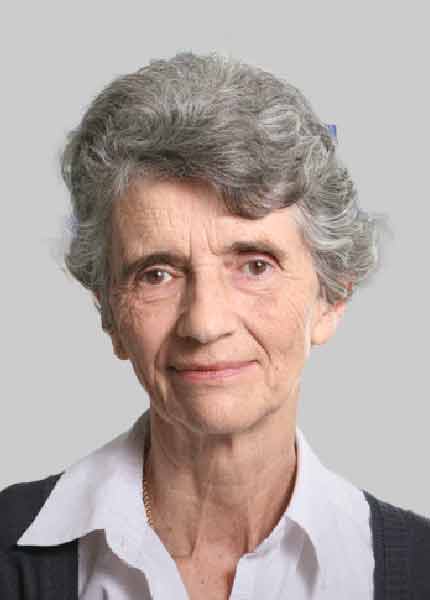
Emeritus Research Fellow at Somerville College
Emeritus Professor of Neuroimmunology at the University of Oxford
Angela Vincent (born 1942) is an Emeritus Professor of Neuroimmunology at the University of Oxford and Emeritus Research Fellow of Somerville College.
She qualified as a doctor in London but after one year of internship she embarked on an MSc in Biochemistry at University College and did not pursue further clinical training. She was an Honorary Consultant in Immunology and established the Oxford Neuroimmunology Service for detection of autoantibodies in neurological diseases.
Her clinical interests are in the role of auto-antibodies to ion channels and receptors in peripheral and central disorders, and in helping to diagnose immunotherapy-responsive conditions. Her research interests include experimental models of neuromuscular junction and CNS diseases, and the influence of maternal antibodies on development.
She has given many named lectures and been awarded a number of honors including Fellow of the Academy of Medical Sciences (2004), Honorary Fellow of the American Neurological Association (2011), and Fellow of the Royal Society (2011).
In 2018, together with Profs Jerome Posner and Josep Dalmau, she was awarded the the Gertrud Reemtsma Foundation’s K. J. Zülch Prize.
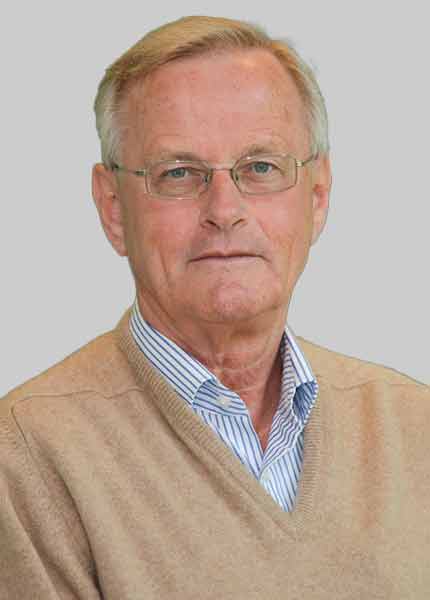
MaxPlanck Institute of Neurobiology
Emeritus Research Group – Neuroimmunology
Hertie Senior Professorship
Martinsried
Hartmut Wekerle was director and member of the Max Planck Institute of Neurobiology. In 2012 he was awarded a Hertie Senior Professorship, and he leads an Extended Emeritus Group. Hartmut Wekerle’s scientific research focuses on the mechanisms initiating and driving multiple sclerosis and its experimental models, which imply autoimmune attack against the nervous system. Wekerle’s work led to the identification of brain reactive autoimmune T lymphocytes in the immune system.
Most recently, he identified the commensal bacterial gut flora as a factor triggering the pathogenic potential of immune cells. He develops and uses new imaging approaches to detail the mechanisms of autoimmune T cell migration into the brain. Wekerle has received numerous awards, including the Jung Prize, Zülch Prize, Koetser Prize, Charcot Award (MS International Federation), Grand Prix Louis D. (Institut de France), and a Koselleck Award (DFG).
He holds an Honorary Professorship of the University of Munich and Honorary Doctorates of the Universities of Hamburg and Würzburg. He is a member of the German Academy of Science (Leopoldina), Honorary Member of the Société Française de Neurologie and Honorary Member of the Cuban Neuroscience Society.
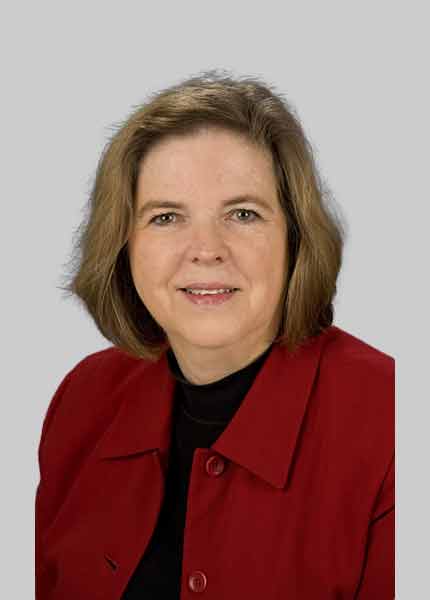
Vice President for Research at The Ohio State University
Professor of Microbial Infection & Immunity
Caroline C. Whitacre, Ph.D. serves as the Vice President for Research at The Ohio State University in Columbus, Ohio. She is a Professor of Microbial Infection & Immunity. She served as Associate Vice President for Health Sciences Research and Vice Dean for Research in the College of Medicine from 2001-2008. Dr. Whitacre received her BA and PhD degrees at Ohio State University and did postdoctoral training at Northwestern University Medical School in Chicago.
She returned to Ohio State in 1981 where she has been on the faculty since that time. She served for 12 years as the Chair of the department of Molecular Virology, Immunology and Medical Genetics in the College of Medicine. Dr. Whitacre’s research is in the area of the immunology of multiple sclerosis. In recognition of her University activities, she was awarded the OSU Faculty Award for Distinguished University Service in 2001 and the Association for the Advancement of Science.
In her current role as VP for Research, Dr. Whitacre is responsible for the overall strategic planning of infrastructure support for the universities $983 million annual research program. She serves on the Boards of TechColumbus, Center of Science and Industry (COSI), The Transportation Research Center, The Wellington School, BioOhio, the National Boards for the Multiple Sclerosis Society and Oak Ridge Associated Universities. She chairs the Board of SciTech, the Ohio State University Research Park. She is immediate past chair of the Council on Research Policy and Graduate Education for the Association of Public and Land Grant Universities (APLU).
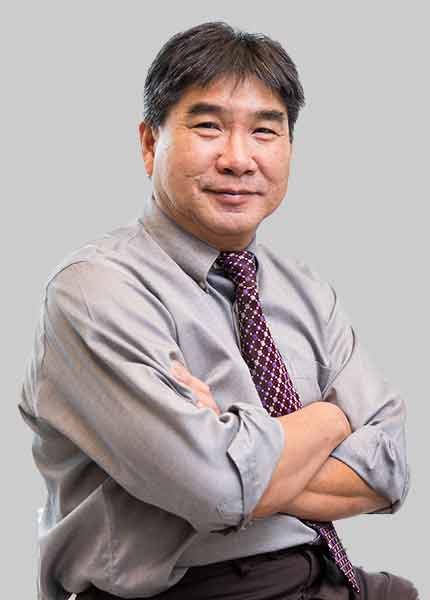
Professor,
Hotchkiss Brain Institute,
Departments of Clinical Neurosciences and Oncology at the University of Calgary
Dr. V. Wee Yong is a Professor at the University of Calgary, Canada. He co-leads the Multiple Sclerosis (MS) NeuroTeam at the university and he directs the provincial Alberta MS Network.
Dr. Yong’s research interests lie in the area of neuroimmunology, neuroprotection and CNS regeneration, and his projects are guided by MS, brain tumors and intracerebral hemorrhage.
Dr. Yong has published 350 peer-reviewed manuscripts and his research has been translated into Phase III clinical trials in MS and spinal cord injury (nine trials across Phase I – III). His work has been cited over 34,000 times (h-index 103). Dr. Yong is on the editorial board of 5 international journals; he is the Honorary Editor-in-Chief of the journal Neuroimmunology and Neuroinflammation. He has been the President of the International Society of Neuroimmunology (2014-2016) and he continues to co-direct its Americas and Global Schools of Neuroimmunology.
Dr. Yong is an elected fellow of both the Canadian Academy of Health Sciences and the Royal Society of Canada. He is the 2017 Allyn Taylor International Prize in Medicine winner. Dr. Yong was profiled in the August 2021 issue of Lancet Neurology.
C.F. 97644730588 | Managed by EEM Services